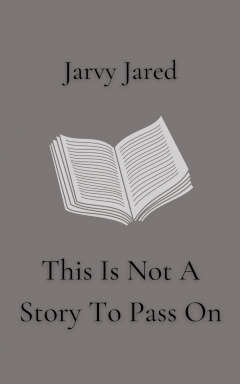
There is a suffering
~~~
There is a suffering older than words, older than pain, older than misery. It is not a suffering to pass on.
~~~
Over the weekend the ravens got into the abandoned shop down the street. That was when Brimstone knew his time was up.
He watched from his window as the birds flew in and out of the shop, like lithe darts of darkness, and noted with some interest that they didn’t make a sound. On silent wings they scuttled past the glass windows shattered by the rocks a few children had thrown weeks ago. It was early enough in the day that nopony was around to shoo them off, so Brimstone supposed the ravens had chosen a good hour.
He stood there for a time. The birds dislodged some crinkled leaves that covered parts of the windowsills and rooftop. These fell like curled-up petals into the street below, and nothing came to sweep them away, not even the wind.
He drew the curtains and turned around.
All the items in his room spoke of the many years he’d spent whittling away time. A single floor lamp, unlit because it had burned out the evening before—ominous, now that he thought of it. A lonely writing desk without a chair. A parchment sheet. His bed, a mess of sheets, covers, and pillows, draped in the colors of the previous season. All were signs that somepony had lived here. In time there would be no such signs.
Going over to the desk, he touched the parchment. It was coarse, like a thin strip of walnut tree bark. He’d stopped using ink because its permanency could kill. All he saw in terms of writing were the faint impressions of graphite figures sprawled across the surface like worms frozen mid-frenzy.
He doubted anypony would know what those figures meant. His vision had started going years before; squinting at the figures, he could not tell what they said. A trick of memory tried its best to bring thought to sight, but he could not recall writing anything of importance.
Still, it would not do to leave it here, for future unprepared gazes.
He rolled the parchment up into a ball, balancing it for a moment in his hoof, before looking at the nearby wastebasket. Other scraps of paper lay there. In the next moment the parchment joined them. Then he took the wastebasket’s rim in his teeth and dragged it out of the room.
The stairs were quiet under him. This gave him pause. They’d never been quiet. No matter his weight or what he carried, they would always creak or groan, always at the same low pitch that seemed reserved for ponies who woke up and realized they were no longer in the spring of their youth. But today, they sang nothing. His hoofsteps echoed aimlessly down the spiral—the stairs gave no reply. Thud, thud, thud. He thought they belonged to another wanderer in the house.
It was a mad thought, but he let himself entertain it on his way down. Perhaps the wanderer would share in his likeness. Not of its own volition, of course—he couldn’t imagine anyone voluntarily taking up the sores in his fetlocks, the stiffness in his spine, the odd crack and pop that thundered from his neck to ear at odd hours of the day. At the bottom of the stairs, he found himself drawn to the solitary figure of the grandfather clock resting against the wall. In its cracked screen he saw himself, and many versions of himself split among those shards, each wandering through their own lonely homes.
How many steps had they walked? As many as he. How many had traveled down the same paths and cut the same trees and burned the same bridges? As many, if not more, as he. And how many had split their lips with how tightly they’d held back the three words no stallion could say to another stallion? As many as he? Could he even know?
Brief shame filled him—not at not knowing, but at that inability to know. Years—it had been years since he had come to terms with it, and yet even that was not enough. Three words remained locked behind a chain that snaked its terrible way around his heart, and even on this day, when he knew that his time was up, he could not free himself from it.
When he came to the living room, he stopped in order to crack his back. Then he turned and flicked a back hoof out to find the switch, and the room came to life before him. It spoke of disarray. A dark plush sofa, with the cushions slightly out of alignment and the pillows on the floor. A brown coffee table with a few light scratches across its aging top. One of his coffee mugs sat on a coaster, and he could see day-old coffee inside. Brimstone’s eyes swerved to the far back wall, where the brick fireplace lay dormant, and then his eyes moved to the spot next to it, where the axed remains of his writing chair sat amid a pile of scarred logs.
This time, rather than leave it all alone as he had upstairs, Brimstone decided it would not do. He set the wastebasket aside, then took his time rearranging the couch cushions back into their place. A bit of dust swirled up, and it was with some grim measure of satisfaction that he blew them away. He picked up the pillows, fluffed them, then placed them back on the couch. Like a mother hen he fretted over their centering until he was sure that they were evenly spaced. Next, he took the coffee mug and walked to the kitchen, where he dumped its contents into the sink. Then he washed the mug and dried it and put it back in the cabinet where it belonged.
He came back into the room. He looked at the wastebasket and the scraps, then the fireplace, then the logs. He went back into the kitchen and retrieved a book of matches from a drawer, then sat himself down at the fireplace’s hearth and set the book aside. Slowly, he moved a few logs into the firebox, arranging them in such a fashion that a flame would easily catch, but not burn out so quickly.
When that was done, he turned to the book of matches and took out one of the matchsticks. But his hoof was unsteady. He watched it somewhat distantly, the red head bouncing and blurring under the weight of his jittery movements. Some frustration welled up in him—young and vibrant, familiar and yet strange all the same, like how one felt when viewing old photographs of themselves, knowing that this had once been them, believing insensibly, This could not be me.
He paused. Took a breath. Set the match down and raised his head. A simple wooden frame hung above the fireplace. Inside it was a white canvas, on top of which rested three apples. Saint Applejack’s Cutie Mark.
He stared at it. Memories of old lessons and worship practices flooded his mind. Beatitudes. Commandments. Teachings from his Confessor and the other parishioners. Things one had to write on their veins, their arteries, their heart, for them to be true. Let it spread among his body until they were as much a part of him as any other organ or muscle. Things which he had to rip out of him once the truth became a pervasive poison. How much of himself, he often wondered, had once consisted of those sweet-tasting falsehoods? And now, with them removed, how much of himself remained?
Brimstone stood shakily. Why was he shaking? That symbol should not make him quake. It wasn’t even a symbol—it was a deep lie, rooted in filth and hate. The real owner would have no doubt been ashamed to know this was how the Diarchy thought of her, positioned her, used her for their own purposes. A voluminous feeling of hate and shame suddenly filled him, threatened to topple him—but, as if from another realm, a foreign strength seized his leg muscles and kept him rooted. The feeling presently seized his neck and forced his gaze to remain steadfast upon that Cutie Mark.
Hold, that feeling seemed to say. Hold, for a little while longer.
In him burned, like the fire he had wanted to set. It was his nerves, he reasoned; now, at his hour, they were failing him. He’d heard from a few of the medical scribes who passed by his house that this was inflammation. Others might have said it wasn’t actually that, that instead, it was his brain finally having enough of this life and deciding to end it all in one fiery psychological swoop.
But that knowledge failed him. Hold, the feeling continued to say. And Brimstone closed his eyes and held.
And the feeling came over him. And the feeling washed and bathed him. And then it was gone. A breath in the winter. And Brimstone was cold.
Now he bent his head and murmured unknown things to himself. They might have been words, they might have been mere sounds. It was enough.
He retrieved the matches. This time, he was able to hold one in his hoof without shaking, and when he struck the side of the box, a flame erupted instantly. It wobbled upon the tip like a griffonness dancer. He stared at it for a second. Then he turned and gently placed it under all of the wood.
A slow tongue licked its way up the logs. A soft orange under-blanket folded over each and burnt down to blue and black. The fire held.
Brimstone stood back and watched for a time. Then he retrieved the scraps of paper from the wastebasket. For a second he was still, as one is when facing the cliff. Then he began to rip them up. The sound they made was sugary to him. After each rip, he flicked them into the fire. Each one, when caught in the flame, sparkled like the peel of little oranges, and as they fell, they sputtered, blue-shifting and brilliant in their demise, until they reached the bottom of the pit and curled into black nibs of nothingness itself.
He was warmed.
~~~
There is an agony without name, without form, without substance. It is not an agony to pass on.
~~~
There had been a book he had read, a dangerous book, because it promised a heavy truth against the easy face of an easier lie. He had lost it years ago but, he suspected, had long been infected with its words before he had even read the page. There was something powerful about the evocation of language that transcended time, space, and medium, that allowed a meaning of a word and the meaning of a long string of such things to fester lovingly in his head. They had lived there for as long as he had lived, perhaps even longer, and he had only become aware of those words when they’d been formalized in the yellow-printed pages and dust-coated binding of a book with neither title nor author.
These years later he could only remember one line: “Perhaps a pony near death sees all the birds fly over, and when he sees the raven it means the hour has come.” And it was so.
There was another book. One which every home had. It, too, was dangerous. Filled with its own share of lines, printed in ink so permanent that even now, years after his faith had left him, the words continued to haunt his very being. A few in particular stalked his mind when it was not busy:
One: The Diarchs, Celestia and Luna, did create all ponies, and commanded us to learn and grow. They are our mothers. Their names are sacred, only to be spoken aloud by the sanctified.
Two: As we grow in holiness, we grow closer to the Diarchs. With each life lived well, we are reborn into a better situation. With each life lived poorly, we step back on the path, but may always continue onward.Three: Unicorns seek to elevate themselves along the path through blasphemous magics. Only by accepting their role on the path, and refraining from magic, can they hope to be reborn into a better station.
Four: To be born as a pegasus is a gift. Those who live well may be reborn with wings, one step closer to the Saints and the Diarchs.
Five: The Six Holy Saints are the closest to the Diarchs. Ponies live their best lives through obedience to their words, and the words of their servants. Even the earth ponies among them show how to make the most of our lives.
How many times had he been forced to remember such things? More than words could account, more than memory could. The lines were like the ghost of memory’s sorrow, sunk at a depth from which it could never be retrieved, as widespread as a global fungal infection.
Brimstone shuddered. In past days when the memory of such lines struck out as a virus might—quick, without warning, coming and going and leaving behind something hollowed out and ugly—he would have sunk to his hindquarters and cried. The guilt of memory was much too strong. Several times he had considered leaving his home and traveling west to where forbidden drinks were rumored to jog forgetfulness into form, but each time, the fact that he remembered held him back. Forgetting—that was to commit a second crime at that point. He could not forget, for not only was he incapable, he was unwilling.
In past days, he would have been engulfed in sorrow, yet also resolve—resolve to undermine the lies, work from behind the scenes, forge a new path that left behind the darkness of the present and chose a brighter future. But today, as he sat on his couch, the mug held between his hooves, and the light outside drawing thin, he was only filled with a stone-cold weariness. Neither happy nor sad, scared nor scornful—he was.
He was, he was, he was… “I am, I am, I am…”
Slowly, that thought, fragmented though it was, without much meaning, became a mantra to him. He repeated it to himself, first out loud, and then, when his voice was much too strained, in his mind. This world… it existed to take away who you were, he realized. It existed to mold you into a fashion befitting what was desired of you, without accounting for you. Is this why faith broke? Is this why one’s beliefs were shaken? Not because they were untrue, but because they were built on something selfish, something which did not lead you to self-actualization? Well, he wasn’t a therapist, or a philosopher. He was Brimstone, Earth pony, lumberjack and hearth-tender, and devotee-turned-traitor.
Of many things, he was. He contained multitudes—very well. He would accept that. In the messy landscape of his mind, he came to terms with such a conclusion, and was at peace.
Distantly, he heard the ravens cry for the first time since he’d seen them. Marvelous, he thought. Was it a hello to each other? Was it a goodbye directed towards him? But they were gone before he could ask.
There was a knock at his door. Slowly, he stood. He looked once at Lady Applejack’s mark. Once, and only that. He had held on, as asked. It was enough.
He was not surprised when he opened the door and saw a group of Mystics standing there, cloaked in shadow, glaring at him, their armored bodies coiled into metal springs as though they feared he might charge them. It would have made him laugh. He was an old pony. Attacking knights was something well beyond his years.
“Mr. Brimstone,” one of them, the leader, evidently, said. Another was poised to enter, no doubt to rifle through his house in search of more blasphemies. “You are hereby charged with…”
He did not hear the rest. Instead his mind was traveling back, to a memory that was not his own, but something somepony else had described. A different time. A warmer time. A friendly, brighter time, when you did not turn your neighbor in for who they were—when you were not so afraid so as to jeopardize the life of another. When you could call each and everycreature a friend, should you be so willing. When you could love who you loved without the threat of erasure.
Brimstone smiled to himself. The hood engulfed his head, and all was dark and nothing else.
~~~
This is not a story to pass on.
Along the streets of New Canterlot City are the invisible footfalls of ghosts and specters, of memories best left forgotten, unheard, unloved.
This is not a story to pass on.
If a child or an adult were to place their hooves in those footfalls, they would find that each one fit them perfectly. They would be astonished, and then quickly forget—for that is how all things are, now.
This is not a story to pass on.
Soon the invisible footfalls will fade beyond invisibility, beyond something forgotten. For forgetting is an accident, and this is not that. In time they will be erased by conscious action, conscious acceptance, conscious complacency.
This is not a story to pass on.

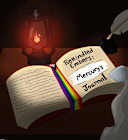
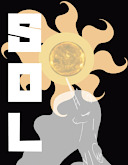




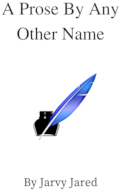






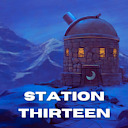



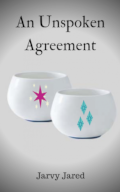
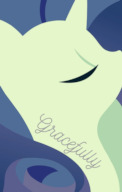
Marvellously done, absolutely marvellous.
11008821
Thank you kindly!
So I say this with all seriousness, and no reservations. You are the kind of writer I aspire to be. This is just incredible.
This line gave me chills.
The sensory imagery here is just so beautiful. You are really quite adept at using all the senses. I feel Brimstone's inflammation, and both the cold and the warmth. I hear what he is hearing when he tears the paper.
I feel this. Sometimes so hard I don't have the words. Some days I think it would be healthier to let go of certain things, to let elements of my identity, elements that built me, fade away. Maybe I will some day. But for now, I'm just like Brimstone.
God, how do you write so well?
Jeez, this whole story gives me chills. This line is just amazing. I don't even know what more to say; you are so much more articulate than I, I think, able to put into words feelings and ideas that still remain nebulous for me.
Thank you for this. So much.
Having not yet read Rekindled Embers at all, I can say this has made me quite interested in reading it, even though I'd planned on doing so already.
That being said, holy crap this is extremely well-written. This feels dark and poetic, inserting feelings into the readers rather than telling a straight story, letting the feelings tell the story. Not to mention the descriptions are fantastic. I don't have the right words to articulate how I enjoyed how you describe the scene, the emotions suffused into Brimstone's surroundings and all of his actions give everything the feel of being old and heavy, the way that he's feeling throughout the story.
Honestly, I'm glad this is so short, because with writing this expressive I'd need a break from anything longer to pick my brain up off the floor and get my head on straight enough to understand the next scene.
Not that the writing is confusing, it's just like fwooom really thick with emotion and it can be heard to read something like that for a long time.
It's almost too good. Koodos to you.
11009136
This is a very reassuring comment, I must say. I was worried that this kind of story would be hard for unfamiliar readers to get into. I'm glad that it made you get more interested in giving RE a read! I really cannot recommend it enough.
Part of my philosophy when it comes to writing description - if there can be a thing such as philosophy for it - is being as precise and yet as simplistic as possible. This allows the language of the story to convey the realness of what is seen in the writer's eye. It's particularly why great stylists are often great descriptors in the most surprising of ways - someone like Woolf is particularly adept at writing how someone looks in the sun or in the night while still retaining the rawness of her style.
This story, I will admit, likely has a few superfluous details that could be removed in another draft, but I am happy that the effect was conveyed. I wanted to say that Brimstone was old without saying outright he was old, and I wanted to give a sense of his house, and how that reflected him. While it is perhaps on the nose to say that a character's setting should reflect something about their personality, I believe it works well enough here.
Oddly, the story you see here is about 100 words longer than the initial first draft. That might not seem like a whole lot, but it's still more than the original in many respects.
Brevity is not my forte, though I have endeavored to get better at it. A story of this length required a precise understanding of length and how to fit the story's "heavy language" within the confines of an upper limit of, say, 3000 words. I was also aware that the way the story would be written would, in effect, require a slow and careful reading of it, meaning that, as you said, there'd be a need to take a break before continuing to the next scene.
Part of the joy and part of the struggle of style is figuring out how to balance a reader's tolerance for syntactical weight against the "voice" of the story, and I am still trying to figure that out with everything I write. But it sounds like I have made a good enough length to the point where this story does not feel like it drags on, too much.
And as you said, it is definitely thick. If not content, then underlying content. I definitely wanted to evoke something particular and avoid a straight-figured plot, and to do that I focused on the language of the piece more than anything.
Thank you kindly! I trust that my comment wasn't too long to read. I quite enjoyed reading your own thoughts and am quite happy to see that you liked this story.
I trust that my comment wasn't too long to read. I quite enjoyed reading your own thoughts and am quite happy to see that you liked this story.
11009183
Nah it wasn't too long. Learning about how other people approach writing in different styles always helps me, cuz I try to pick up something in order to improve my own writing.
I'll leave it that though, so this doesn't devolve into a back-and-forth of thank yous
11008882
Coming from you, that means a lot. Your nearly half-a-million-words epic has been a gift for me to read in the post-show years. I'm glad I could contribute something in return.
This, I assume, relates both to the tearing, and then the burning, of the paper.
That was the hardest part to write, even though it's not even the final part of the story. When I began writing it, I had in mind an image of him tearing and flicking those pieces into the fireplace, but I had a difficult time trying to turn that concept into something real. It was to be the point of transformation within the story - though perhaps it is a failed transformation, as in the end, Brimstone is taken away. What transformation he goes through is made to be forgotten (the passive voice construction here is intentional). But I wanted to freeze this moment in time. Let it sit in the reader's head, let the language of it fill the space.
I don't know if this is lazy, but I looked through Hemingway's A Moveable Feast and found where he also talked about flicking stuff into a fire - in his case, peels of oranges. Suddenly I knew how to write the moment, pay homage to one of my favorite often-quoted lines about writing, and still retain the language of my own piece. The odd simile pairing of scraps of paper and peels of oranges felt somehow true, and the turn from orange, to blue, to black, to nothing, spoke poetically to me. (I was also thinking about a poem I read, by a Spanish nun, that ended with something about colors fading into nothing at the end.)
I will play devil's advocate and argue that I was not fully able to put into words feelings and ideas that are nebulous to many others.
A component of language and of style is the obscuring of meaning and intention - a component that is only uncovered upon close examination. While this story is certainly heavy in style, I think it's still a style that points to how difficult it is to convey things in a truly exact matter. We can only get so close to the sun, after all. I believe that is because words are inherently limited in their use, and that much of our understanding of them comes not from denotation, but connotation - and it's connotation built from our personal context and our "hearing" of the language as it comes out.
I think for this story, I was not able to fully convey the "kind" of heaviness that Brimstone felt - just that there was a heaviness. On the other hand, that might be fitting. There is a suffering, after all, beyond words. And a memory beyond memory. A story not to pass on.
Mmm.
11009307
Good mmm or bad mmm?
Amazing! You're so articulate and can spread the feels in a story so well. A great addition to applezombi's RE.
Truly, a wonderful piece of literature you have given. It certainly, reminds me in a way of other tales but yet there is a pure raw emotional connection here. Which is something to inspire too, great job on this.
11111965
Thank you! I'm glad the story continues to prove powerful, even after all this time.
I had to admit, when I read about him preparing matches and thought about his name (Brimstone), I believed his intention was to torch himself and his house as a last act of defiance against the Diarchy. The story, though, is probably better served as a reflection on memory in an authoritarian state. A novel that reflects on memory and forgetting along the same lines of this story is Milan Kundera’s The Book of Laughter and Forgetting, which reflects on the nature of societal memory in Communist Czechoslovakia. Brilliant work!
I'm shuddering at the horrible irony of this. I can only imagine what the writings on those parchments could possibly have to do with those words that cannot be said. And this for him was the only way to get some fleeting warmth out of them before the inevitable happened, when he had deserved so much more.
This is just beautifully written.
11293688
I mentioned this in the story's Style Notes, but irony - and more specifically, the irony of thesis and antithesis - is prevalent in a lot of the story's language, if not the plot and meta-context themselves. I'm a fan of language that does more than "speak," so I'm quite glad you were able to determine that note of irony that this piece attempts to sing.
If you want to know more about what is hinted at, that is, what may have been on those parchment scrappings, the best thing I can do is direct you to applezombi's Rekindled Embers, in which this story is based. You may find that some of the subtlety found in my story can be explained by details brought up in his story.
Thank you for reading!
11293696
Thank you! No need, that story is exactly where I was coming from in the first place and I'm really enjoying reading it and it's something that I can relate to far too much.
There's quite a bit more that stood out (oh boy, that segment at the very end), but I didn't feel like repeating what other comments already said - and also gotta leave something for the next person ;)